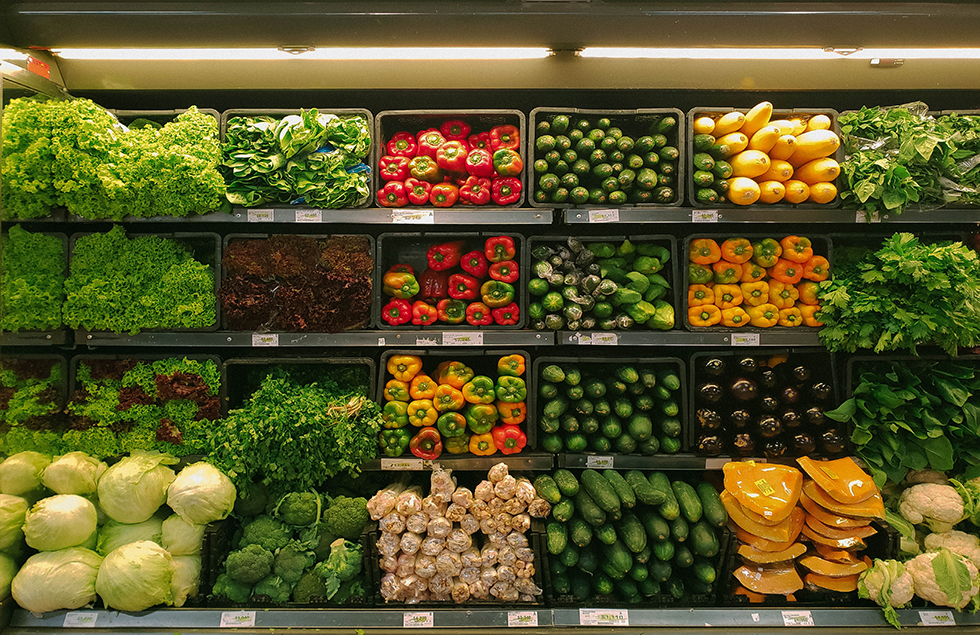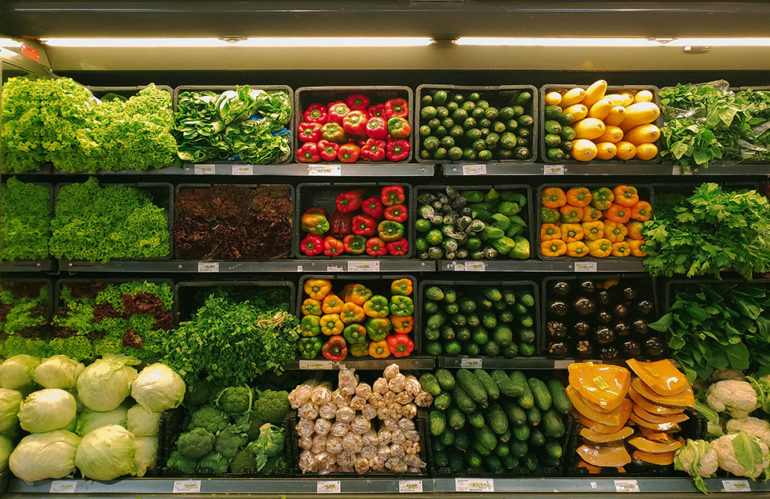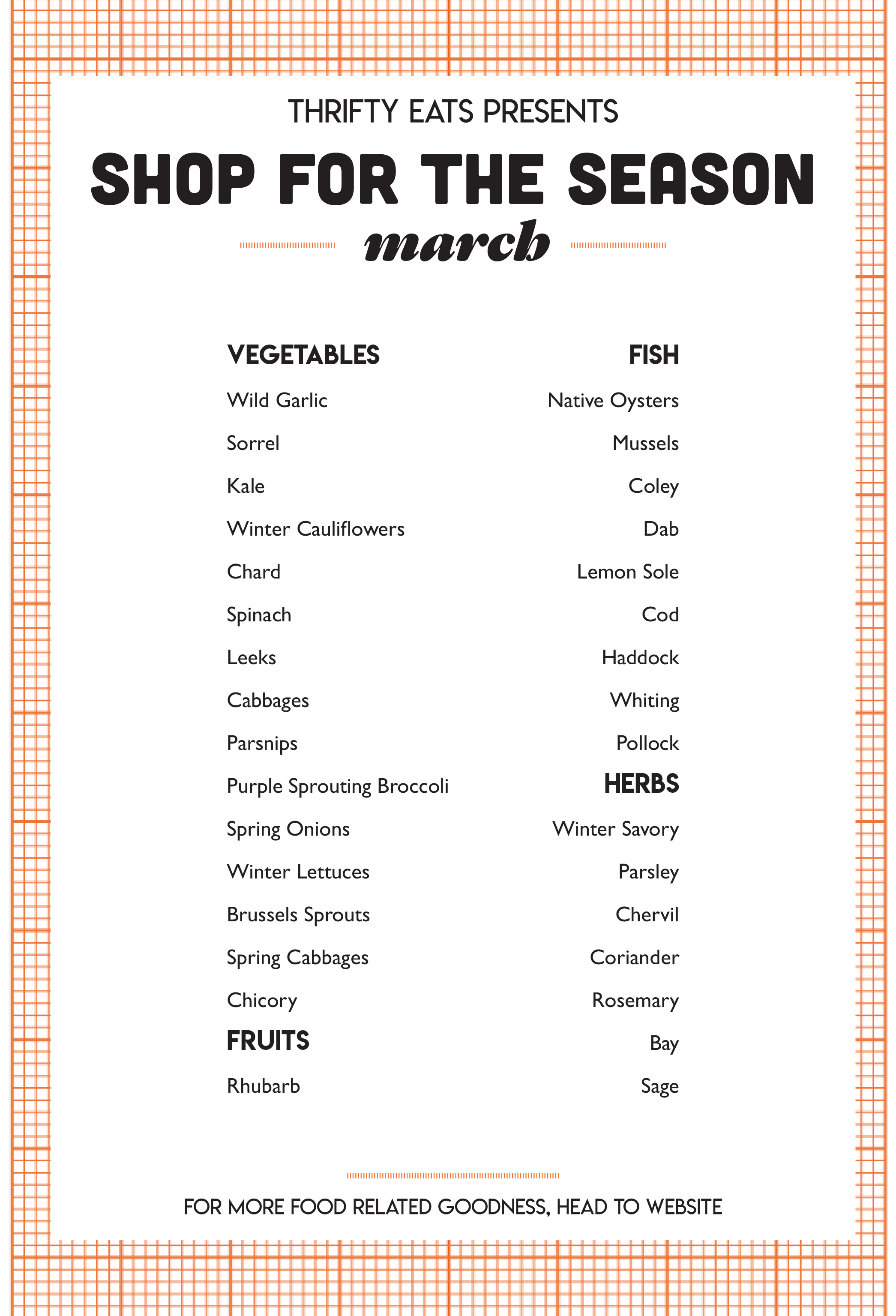Changing consumer habits and recent food trends in the UK show that we are longing for the cheap and easy life

Supermarket and food supplier reports for food trends in 2020 indicate that consumers are becoming more conscious of their eating and spending habits. We want to spend less and waste less. That’s thrifty.
More of us are buying frozen chopped vegetables and herbs to last longer, saving time and cutting food waste in the process. Families are turning to cheap bulk cooking and taking comfort in a simple form of living, more of us are even growing produce in their gardens. The ‘root-to-tip’ movement, i.e. wasting nothing from your food shop, is growing. Coffee body scrub anyone?
Taking responsibility
As we take more responsibility in the ensuing climate crisis, consumer habits are evolving and we’re becoming more conscious spenders. Speaking to Huffington Post, Kelly Landrieu from Whole Foods said, “Consumers have expectations around how their food is grown, where it’s coming from and what it’s doing to better our world.”
This particularly concerns meat, the number of flexitarians are increasing in the United Kingdom and more of us are looking for better quality meat and fish while limiting how much we buy it. Thanks to better labelling, more are concerned about the welfare of the animal, if it’s British and free-range.
Consumer savviness
Although contactless payments may make us more indulgent and careless when we’re at the checkout, people are becoming more mindful when it comes to spending perhaps thanks to money-saving apps.
Waitrose report that 49% of its consumers are buying fewer lunches out and instead are meal-prepping and 46% are going to the pub less often.
Sober-curious
A fall in alcohol consumption has been observed across the board, and as such, more non-alcoholic and low-alcoholic options proliferate the market.
Although we’ve recently seen out Dry January, alcohol-free spirits and low-alcohol lager are still a mainstay on supermarket shelves and “sober-curious” Millenials are drunk in love.
As cans are more easily recyclable, they are predicted to increasingly outweigh bottles in the future.
Regarding alcoholic drinks, anything pink is in and English and Welsh produced wine has seen a boost since the bumper harvest in 2018.
Snack wars
Despite being a nation of crisp lovers, healthier snacks will continue to increase in popularity and quantity in the market; cheese, carrots, crackers and cold coffee cans.
Although the avocado has probably had its moment, high-fat and good-fat snacks are on the rise; yoghurts, nuts, and ‘protein balls’ (and their vegan and low-sugar alternatives) are expected to grow.
Plastic cut-down
There’s a concerted effort from retailers to reduce plastic packaging, as consumers are keen to reduce their reliance on single-use plastic after observing the staggering effect in media coverage.
Tesco has promised to reduce a billion pieces of plastic packaging by the end of this year, so expect more loose fruit and veg and card packaged products.
Sainsbury’s have even reported a rise in edible packaging like sauce sachets made out of seaweed. Hmmm, fishy.
Plant-based
Veganism is going nowhere, and more meat alternative products will change the shape of our supermarkets and restaurants. With such products, expect more chefs to create exciting vegan meals beyond just a bean burger and chips.
Home- cooks are increasingly searching vegan recipes online and fast-food chains are chancing their arm at vegan options too.
Greggs’ vegan ‘sausage’ roll was such a success, that staff even received a bonus from it.
Consumer giants like Nescafé and BirdsEye have introduced vegan products to meet the growing demand.
The near future
In terms of sustainability, this can only be good news – supermarkets are promising to cut down their use of plastic, people are eating less meat and there is a tangible focus on producing less food waste from home-cooks and professional chefs alike.
The challenge of being sustainable and ethical in food consumption will not dissipate. However, by 2050, the world’s population is expected to reach 8 billion, posing more environmental challenges for food production.
But, if food and consumer trends are anything to go by, more of us are aware of such challenges and making changes where we can.
Hey, if Greggs can do their bit, so can we.

